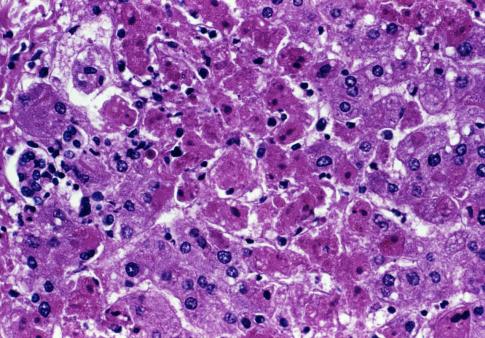Is the new coronavirus the next SARS?

Fears a new respiratory virus identified last year in the Middle East could cause a pandemic are unfounded. The virus isn't showing signs of it – yet
by Debora MacKenzie
Fears a new respiratory virus identified last year in the Middle East could cause a pandemic are unfounded. The virus isn't showing signs of it – yet
A 60-year-old man is in serious condition in hospital with the new coronavirus that was discovered in Saudi Arabia last year. Reports that he passed it onto his son have prompted comparisons between the new virus and SARS, the disease that killed 775 of the 8000 known people it infected worldwide in 2003. But how sensible are the comparisons?
What kind of disease does the virus cause, and can it spread?
The man hospitalised in Manchester, UK, late last month has severe pneumonia caused by the new coronavirus – so severe, his blood is being oxygenated outside his body. The UK Health Protection Agency (HPA) reported on Wednesday that the man's son has now been hospitalised with the virus in Birmingham.
The first man had recently travelled to Pakistan and Saudi Arabia, and fell ill after four days in Saudi. His son lives in the UK and had not been abroad – in fact he is the first of the 11 cases known so far who is not a resident of Saudi Arabia, Qatar or Jordan. The HPA says he probably caught the virus from his father.
Does this mean the virus has the ability to spread quickly among people?
No. The son had health issues which may have lowered his immunity, says the HPA. And no one else who has come into contact with the two has fallen sick, so far.
Indeed, other than the son, nobody who has been in close contact with people known to be infected with the new virus have so far tested positive for it. "If novel coronavirus were more infectious, we would have expected to have seen a larger number of cases," says John Watson, head of respiratory diseases at the HPA.
Is this the first case of person-to-person transmission of this virus?
No. Last April, before the new coronavirus was discovered, eleven people in Jordan, including eight healthcare workers in an intensive care unit, came down with severe pneumonia. Their samples tested negative for any respiratory pathogens known at the time. But after the new coronavirus was discovered in pneumonia patients from Qatar and Saudi Arabia in September, the Jordan samples were retested. Two of the healthcare workers, who had died, tested positive for the new virus.
The cluster in Jordan raised the possibility of human-to-human transmission, said the World Health Organization, even though not all the cases were reported as testing positive for the virus.
This is not impossible: in the cases confirmed so far, the virus mainly affects tissues deep inside the lungs, and may not have been present in a sample from further up the respiratory tract.
This is worrying as healthcare workers were among the chief victims of the SARS virus in 2003. Hospital workers are being closely monitored in Manchester and Birmingham.
Three people who contracted the virus in Riyadh, Saudi Arabia, last October were also members of the same family, according to Saudi health authorities. Two died. But we do not know if these people gave the infection to each other, or if all were exposed to the same source in the environment. The results of a survey of wildlife in the region for similar viruses have not yet been released.
Why does everyone keep mentioning SARS?
It was also a coronavirus that caused SARS (severe acute respiratory syndrome). That virus jumped from bats to humans in southern China and spread worldwide in 2003, killing 775 people. The new coronavirus is most closely related to coronaviruses that come from bats, although that doesn't prove it is from bats or that it will do what SARS did.
A study in December found that most European health authorities have the facilities to perform a test for the new coronavirus. One problem, though, is knowing who to test. As well as being infected with the novel coronavirus, the 60-year-old man hospitalised in Manchester also had a flu virus when he was first examined. If such co-infection is common, many people with pneumonia who test positive for flu could be treated for that without being tested for any other viruses, leaving the new coronavirus to slip under the radar.
.




 del.icio.us
del.icio.us Digg
Digg

Post your comment